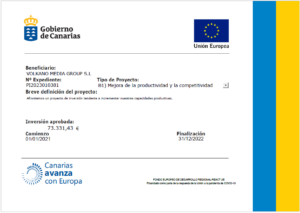His team is collaborating with Mass General’s Research Patient Data Registry to obtain de-identified patient records, which they plan to review for instances of stigmatizing language. He hopes the process will help researchers quantify the prevalence of such language in clinical notes and identify patterns that can inform interventions. The team will also analyze the association of stigmatizing language with patient outcomes. Damage to the liver can impair its ability to carry out vital functions. Not only does this organ filter out toxins from the blood, but it assists with blood clotting and plays an essential role in food digestion. This website is using a security service to protect itself from online attacks.
Do trazodone and alcohol mix?
He enjoys research examining the neurophysiological foundations of pain and exploring the potential for technology in pain management. Always consult your healthcare provider to ensure the information displayed on this page applies to your personal circumstances. By Lindsay CurtisCurtis is a writer with over 20 years of experience focused on mental health, sexual health, cancer care, and spinal health.
Opioid Pain Medications
Having an alcoholic drink while you are taking medications to treat prostate conditions can cause dizziness, lightheadedness, and fainting. Mixing these medications with alcohol intensifies the side effects and increases the risk of a fatal overdose. Combining alcohol with medications used to treat hypertension (high blood pressure) can cause dizziness, how to wean off alcohol and safely taper drinking fainting, drowsiness, and arrhythmia (irregular heartbeat). You should avoid drinking alcohol if you are taking allergy medications or any multi-symptom cold and flu formulation. Mixing anti-anxiety and epilepsy medications with alcoholic beverages can cause slowed breathing, impaired motor control, abnormal behavior, and memory loss.
- For example, OTC painkillers (including nonsteroidal anti-inflammatory drugs) can cause a range of symptoms from gastrointestinal upset to bleeding and ulcers in the stomach to tachycardia (racing heart).
- “Repeated use will just progress the damage, making it difficult for the body to rebound back,” Dr. Free says.
- A doctor may prescribe opioids, such as oxycodone, for pain relief.
- Instead, she advises rehydrating your body with water and plenty of electrolytes as treatment options for a hangover.
Kidney damage
Medications used to treat insomnia or help you fall and stay asleep should never be mixed with alcohol. The sedating effect of these drugs can be increased by alcohol, leading to slowed or impaired breathing, impaired motor control, abnormal behavior, memory loss, and fainting. In addition to worsening the side effects of antidepressant medications, mixing these dealing with stomach pain after quitting alcohol lantana recovery drugs with alcohol can also make symptoms of depression worse. Here is a short list of the most common prescription and OTC drugs that can pose a risk to your health if mixed with alcohol, as well as what can happen if the substances are combined. Additionally, drinking alcohol can also make the side effects of a medication worse or even cause new symptoms.
Depending on the type of opioid, they can control pain for up to 12 hours, as they are a time-release drug. Rather than releasing all at the same time, the medication’s effects continue to release over an extended period. Taking opioids, such as oxycodone or morphine, in combination with alcohol can have severe consequences and be fatal. Because opioids and alcohol are both depressants, combining them can have a synergistic effect. This means the effect of each substance is stronger when taken together than when taken separately. As with cold and flu remedies, combining alcohol with medications used to treat a cough can cause drowsiness, dizziness, and motor impairment.
Damage to your liver can reduce its ability to perform these functions. It can also lead to increased pressure in your brain or abnormal bleeding and swelling. National Library of Medicine, taking acetaminophen can be dangerous for people who regularly drink alcohol. However, most negative side effects occur due to excessive consumption of both.
A 2016 review highlights that the risk of acetaminophen-induced liver damage is higher for individuals who have AUD and also overdose on acetaminophen. Taking acetaminophen at high doses or together with alcohol can cause several side effects. This risk of severe side effects may be higher for people with alcohol use disorder (AUD). Secondly, the CYP2E1 liver enzyme breaks down around 5-10% of the drug. In response, the liver produces an antioxidant called glutathione, which the body uses to remove the toxin before it can build up and cause liver damage.
For example, women can experience the effects of mixing alcohol and medications more severely than men because of differences in metabolism. “Repeated use will just progress the damage, making it difficult for the body to rebound back,” Dr. Free says. Instead, she advises rehydrating your body with water and plenty of electrolytes as treatment options for a hangover.
Here is what you need to know about the possible unsafe interactions between alcohol and common prescription and over-the-counter medications. If you take any medication—even over-the-counter (OTC) products—you should know that drinking alcohol might affect how your meds work. Because the body’s ability to break down alcohol worsens with age, alcohol stays in the body longer. Older people are also more likely to be prescribed medication that interacts with alcohol in the first place. It was dark and lonely the night I called my future wife, and broke down crying.
In March 2023, the Food and Drug Administration (FDA) approved Narcan Nasal Spray as an over-the-counter (OTC) emergency treatment for opioid overdose. Medical intervention—such as naloxone treatment—is required in case of overdose to avoid death. That’s why individuals who drink too much alcohol often slur their speech or stumble around a bit. These effects are generally temporary and do not cause permanent damage.
Naloxone can rapidly reverse opioid overdose by quickly restoring normal respiration to a person whose breathing has slowed or stopped due to mixing opioid pain medications with alcohol. If vanderburgh house you binge drink or frequently drink a lot of alcohol, you’re also at increased risk of liver damage. It’s important to be honest with your doctor about the amount of alcohol you drink.




